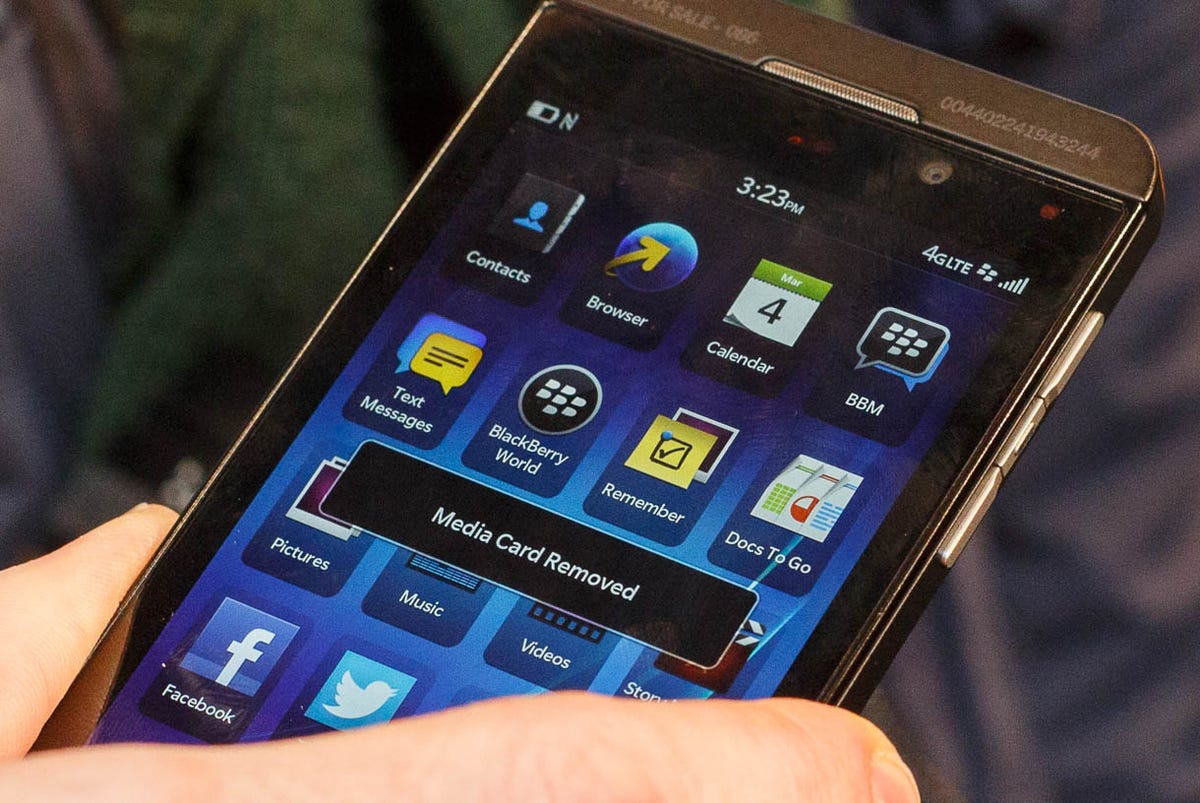HANNOVER, Germany–In today’s James Bond world, smartphones get you instant access to top-secret information. In the real world, security constraints mean mobile phones generally aren’t nearly so clever or convenient.
BlackBerry and Secusmart hope to change that through a partnership that at least has won over the German federal government. It has authorized purchases of phones with the BlackBerry 10 operating system augmented with Secusmart’s SD card-mounted security chips for classified communications, said Hans-Christoph Quelle, Secusmart managing director, speaking here at the CeBit technology show.
The approach uses a feature in BlackBerry 10 called Balance, which partitions work and personal data and applications. With the chip, launching a work app requires the user to type in a PIN. A successful log-in grants access to encrypted communications including voice calls, text messages, Web browsing, and authorized apps; an unsuccessful log-in freezes the user out of the work mode.
“You can have classified information on your phone, but you can use it for your regular phone,” said Sinisha Patkovic, vice president of BlackBerry’s security advisory service. With the approach, personal contacts aren’t mixed with work contacts, and classified files can’t be sent with Gmail.


Stephen Shankland/CNET
The companies showed off the technology on a BlackBerry Z10, one of the new phones the mobile phone maker is hoping will restore its fortunes that Android and iOS have undercut dramatically.
Secusmart supports other operating systems with its encryption technology, and indeed showed off its Android wares last year at CeBit. But BlackBerry goes further, said Secusmart Chief Technology Officer Christoph Erdmann.
“Android doesn’t have platform security down to the chipset,” Erdmann said, and BlackBerry does. “In Android, you’re not able to ensure the operating system has not been manipulated.”
iOS devices lack a microSD Card slot, so the technology can’t easily be used with them.


Stephen Shankland/CNET


Stephen Shankland


Stephen Shankland/CNET



